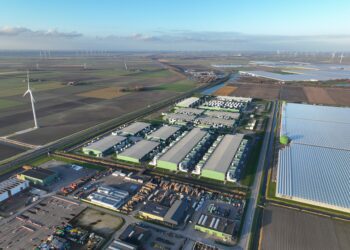A new study from Olivier Toubia, Columbia Business School’s Glaubinger Professor of Business along with Professors Darren Dahl of the University of British Columbia; Charles Noble of the University of Tennessee; and Martin Schreier of Vienna University of Economics and Business, introduces a framework to help leaders do just that. Rather than proposing a one-size-fits-all solution, their paper outlines what they call Better World (BW) Innovation: a rethinking of how innovation is designed, implemented, and measured in the modern economy.
Their work is a call to action for firms that want to remain relevant and resilient in a world where financial performance increasingly hinges on a company’s ability to create social and environmental value.
Key Takeaways
- Traditional innovation strategies focusing narrowly on consumer needs and maximizing profit are no longer sufficient.
- Better World (BW) Innovation encourages firms to redesign innovation processes to account for environmental, societal, and systemic impact.
- BW Innovation calls for cross-sector ecosystems, public-private collaboration, and new market infrastructures to sustain innovation with purpose.
What the Researchers Found
The researchers’ central argument is that the dominant innovation model, focused on consumer demand, competitive advantage, and short-term financial returns, is poorly suited to the scale and complexity of today’s global challenges. In response, they outline a vision for “Better World” (BW) Innovation: an approach that places sustainability, equity, health, and long-term value at the core of the innovation process.
- Redesigning Organizational Structures
Short-term performance pressures can undermine long-term innovation goals. To shift toward BW outcomes, the researchers emphasize the importance of changing incentive systems, decision-making authority, and evaluation criteria to support patient, collaborative, and inclusive innovation efforts.
- Understanding Consumer Behavior
Rather than focusing solely on encouraging product adoption, firms must also consider when to slow or steer consumption based on externalities. BW Innovation calls for a more active role in shaping consumer behavior to meet demand and foster outcomes aligned with societal and environmental health.
- Building Supportive Ecosystems
Sustained, high-impact innovation rarely happens in isolation. The researchers stress the importance of market infrastructure, such as cross-sector alliances, public-private partnerships, and forward-thinking regulation, that can help BW innovations scale and endure.
Together, these dimensions represent a departure from innovation-as-usual. The researchers aren’t advocating for abandoning business performance, however. Instead, they argue that long-term success increasingly depends on meeting rising stakeholder expectations for transparency, impact, and shared value.
Read the full article by Jonathan Sperling / Colombia Business Insights












